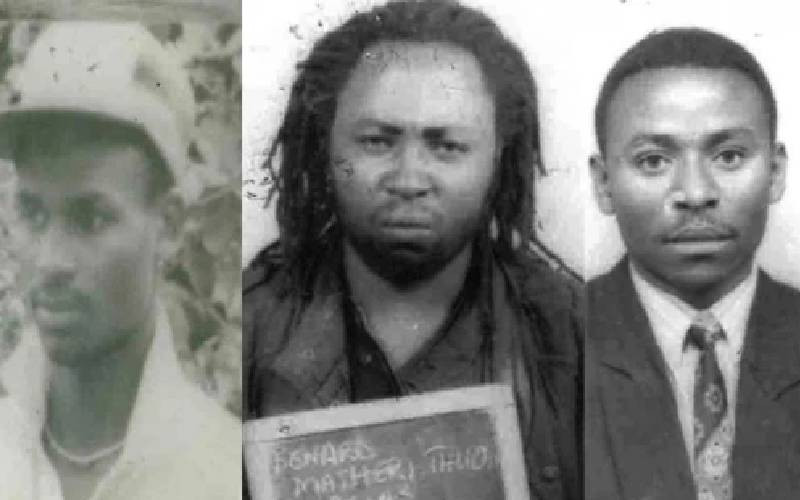×
The Standard e-Paper
Home To Bold Columnists

The three musketeers form left: Anthony Ngugi Kanagi (Wacucu) Bernard Matheri Thuo (Rasta), Gerald Wambugu Munyeria (Wanugu). [File, Standard]
The presidential motorcade was about to pass through Naivasha town in the last week of March 1973 when armed robbers struck.